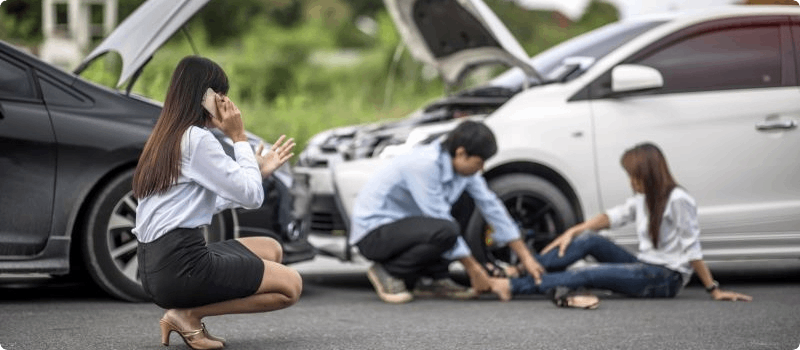Bodily injury and medical payments insurance
Updated April 15, 2024 . AmFam Team
From liability to medical bills, American Family Insurance may be able to help cover costs associated with accident-related injuries. The following article outlines our bodily injury and medical payments coverages and how they may be valuable to you.
How does bodily injury liability insurance differ from medical payment insurance?
Bodily injury liability insurance and medical payment insurance may help protect drivers in different ways. The difference between the two auto coverages lies in who is at fault for the accident and who is protected by the insurance.
Bodily injury liability insurance
This coverage may help protect you when you're held responsible for an accident. It may help cover drivers and passengers of other vehicles involved. It may also be able to help pedestrians or bystanders injured in the accident. Your passengers may be covered, too, except in certain states where resident family member passengers are excluded.
Medical payment insurance
This is also known as auto insurance medical coverage, and it may help cover you, your family members and your vehicle's passengers at the time of the accident, regardless of who is at fault.

Bodily injury liability insurance
When you’re in a car accident and deemed responsible, your bodily injury insurance may be able to help protect you in the following ways:
Medical expenses for others involved
This coverage may help cover emergency medical care, hospital bills and hospital visits. It may also help protect you from medical equipment costs like wheelchairs, crutches or braces.
Physical pain
If any of the injured persons have long-lasting physical pain, this coverage may help compensate them.
Lost wages
If the injured person can’t work due to injuries sustained in the accident, your coverage may help cover their lost wages.
Legal fees
If an injured party files an accident-related lawsuit, bodily injury liability insurance may help pay your legal fees.
Funeral costs
This coverage may help protect you from funeral costs in the event of a fatal accident.
Bodily injury liability coverage may help prevent major financial headaches in the event of an unexpected loss. Ask your American Family agent about adding it to your policy for more peace of mind.

Medical payment coverage
If you’re in a car accident, medical payment insurance may help cover you, your family members and your passengers, no matter who is at fault. You may also be covered if you’re hit while walking or riding your bike.
Medical payment insurance may be able to help in the following situations:
You or a family member are driving, and passengers are injured. Regardless of who is at fault for the accident, everyone in your or your family member’s vehicle may be covered.
You’re struck by a car while you’re out walking, running or biking. If you’re the victim of an accident when you’re not in a vehicle, medical payment insurance may help deliver coverage.
If you’re a passenger in your friend’s car and you’re hurt in an accident. No matter if your friend or the other driver is at fault, this coverage may be able to help protect you.
If the accident is fatal. Medical payment coverage may help cover funeral expenses after an accident-related loss.
Even if you have an excellent healthcare plan, it might only protect you and/or your family. If you’re responsible for driving your kids and their friends to school or you carpool to work, medical payment insurance may also help protect your passengers after an unexpected event. Talk to your American Family agent about adding this coverage — and some extra peace of mind — to your auto policy today.
This information represents only a brief description of coverages, is not part of your policy, and is not a promise or guarantee of coverage. If there is any conflict between this information and your policy, the provisions of the policy will prevail. Insurance policy terms and conditions may apply. Exclusions may apply to policies, endorsements, or riders. Coverage may vary by state and may be subject to change. Some products are not available in every state. Please read your policy and contact your agent for assistance.

